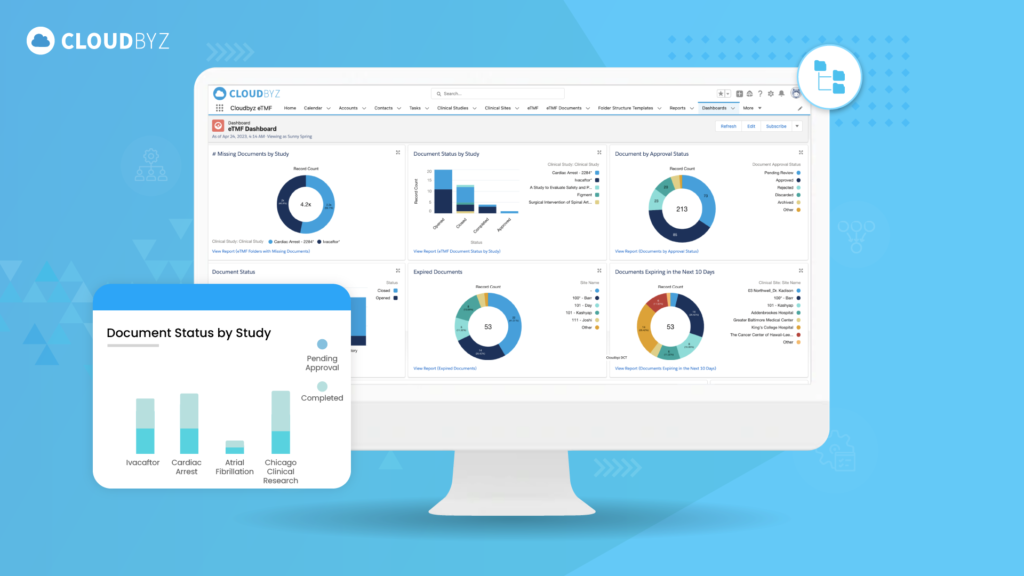
The start-up phase of a clinical study is a critical period that lays the groundwork for the entire research process. This phase involves meticulous planning, coordination, and documentation to ensure that the study is conducted ethically, safely, and in compliance with regulatory standards. One of the key components of this phase is the compilation and management of essential documents. These documents serve several crucial purposes and play a pivotal role in the successful execution of clinical trials.
What are Essential Documents in Clinical Trials?
Essential documents are those documents which individually and collectively permit evaluation of the conduct of a trial and the quality of the data produced. These documents are the backbone of a clinical study, serving as a tangible record that the study was conducted in accordance with Good Clinical Practice (GCP) guidelines, regulatory requirements, and the study protocol.
Why Do We Have Essential Documents?
- Regulatory Compliance:
- Essential documents are required to demonstrate compliance with regulatory requirements. Regulatory authorities, such as the FDA in the United States and the EMA in Europe, have stringent guidelines on the conduct of clinical trials. These documents provide proof that the study adheres to these guidelines and can withstand scrutiny during audits or inspections.
- Ethical Conduct:
- Clinical trials must be conducted ethically, with the safety and rights of participants as the top priority. Essential documents include informed consent forms, ethics committee approvals, and adverse event reports, which collectively ensure that participants are fully informed and protected throughout the study.
- Data Integrity and Quality:
- The credibility of the study’s outcomes hinges on the integrity and quality of the data collected. Essential documents, such as source documents, case report forms, and data management plans, ensure that the data is accurately recorded, verified, and analyzed. This is crucial for the validity of the study findings.
- Traceability and Accountability:
- Clinical trials involve numerous stakeholders, including sponsors, investigators, study coordinators, and regulatory bodies. Essential documents provide a clear trail of accountability, outlining the responsibilities and activities of each party involved. This traceability is vital for addressing any issues or discrepancies that may arise during the study.
- Facilitation of Study Conduct:
- Proper documentation aids in the smooth conduct of the trial by providing a structured framework for the study procedures. Documents like the study protocol, investigator’s brochure, and monitoring plan ensure that everyone involved understands the study’s objectives, methodology, and their respective roles.
- Protection Against Legal Risks:
- Clinical trials are subject to various legal implications. Essential documents serve as legal evidence of compliance with all regulatory and ethical guidelines. This can protect the sponsors and investigators from potential legal actions in case of disputes or allegations of misconduct.
- Foundation for Future Research:
- The documentation from a clinical trial not only supports the current study but also lays the groundwork for future research. Detailed records of methodologies, findings, and deviations help future researchers understand the context and build upon previous work, fostering scientific progress.
- Support for Marketing Authorization:
- When seeking marketing authorization for a new drug or device, regulatory bodies require comprehensive documentation to assess the product’s safety and efficacy. Essential documents provide the necessary evidence to support these applications, potentially speeding up the approval process.
Key Essential Documents and Their Purposes
- Study Protocol:
- This is the blueprint of the clinical trial, detailing the study’s objectives, design, methodology, statistical considerations, and organization. It serves as a reference for all study-related activities.
- Investigator’s Brochure:
- This document provides comprehensive information about the investigational product, including its composition, pharmacology, toxicology, and previous findings. It helps investigators understand the rationale behind the study and the product’s profile.
- Informed Consent Form:
- Ensuring that participants provide informed consent is a cornerstone of ethical clinical research. This form explains the study’s purpose, procedures, potential risks, and benefits, enabling participants to make an informed decision about their involvement.
- Ethics Committee Approvals:
- These approvals confirm that the study has been reviewed and approved by an independent ethics committee, ensuring that it meets ethical standards and safeguards participant welfare.
- Case Report Forms (CRFs):
- CRFs are used to collect data from each participant in a standardized manner. They ensure consistency and accuracy in data collection, which is crucial for reliable study results.
- Adverse Event Reports:
- These documents track any adverse events experienced by participants during the study. They are essential for monitoring participant safety and for making informed decisions about the study’s continuation.
- Source Documents:
- These include original records and certified copies of clinical findings, observations, or other activities necessary for the reconstruction and evaluation of the trial. They provide direct evidence of the participant’s involvement and data accuracy.
- Monitoring Plan:
- This document outlines the strategies for overseeing the conduct of the trial, ensuring that it is conducted according to the protocol, SOPs, GCP, and regulatory requirements.
- Financial Agreements:
- These documents detail the financial arrangements between the sponsor and the investigator or institution, ensuring transparency and accountability in the funding of the trial.
- Insurance and Indemnity Agreements:
- These agreements provide coverage for potential liabilities arising from the study, protecting both the participants and the researchers.
- Training Records:
- Documentation of training for all personnel involved in the study ensures that everyone is qualified and understands their roles and responsibilities.
- Log of Delegation of Authority:
- This document records who has been delegated specific responsibilities during the study, ensuring clarity in task allocation and accountability.
Best Practices for Managing Essential Documents
- Develop a Comprehensive Document Management Plan:
- A well-structured plan should be in place to manage the creation, review, approval, distribution, and archiving of essential documents. This plan should define the roles and responsibilities of each team member involved in document management.
- Utilize Electronic Document Management Systems (EDMS):
- Implementing an EDMS can streamline the management of essential documents by providing a centralized platform for storing, tracking, and retrieving documents. It also enhances security and compliance by maintaining audit trails and version control.
- Ensure Timely and Accurate Documentation:
- All essential documents should be completed, reviewed, and updated in a timely manner. Delays or inaccuracies in documentation can lead to compliance issues and compromise the integrity of the study.
- Regular Audits and Quality Checks:
- Conducting regular audits and quality checks of essential documents ensures that they meet regulatory standards and are accurate and complete. This proactive approach helps identify and rectify issues early on.
- Training and Education:
- Continuous training and education of the study team on the importance of essential documents and proper documentation practices are crucial. Well-informed team members are more likely to adhere to documentation requirements diligently.
Conclusion
The importance of essential documents in the start-up phase of a clinical study cannot be overstated. They are fundamental to ensuring that the study is conducted ethically, safely, and in compliance with regulatory standards. By providing a comprehensive record of the study’s conduct and data, these documents uphold the integrity and credibility of the research, ultimately contributing to the advancement of medical knowledge and patient care.
In the complex and highly regulated world of clinical research, essential documents serve as the foundation upon which successful and trustworthy clinical trials are built. Their meticulous management and organization are key to the smooth execution and ultimate success of any clinical study. Implementing best practices for managing these documents ensures that all regulatory and ethical standards are met, protecting the rights and safety of participants and supporting the validity of the study outcomes.


